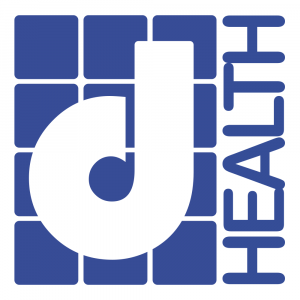DHS 2.3 - Artificial Intelligence in Healthcare
Tuesday, May 28th 2019, 16:00-17:30
In the past few years there was a tremendous change process in healthcare supported by new technologies. This is an still ongoing process.
AI is one of this new technologies and has the potential to change the world of healthcare forever. The idea that a machine could exhibit the same level of Intelligence as a human being has captivated scientist for decades - that day is nearing. AI is not about building a robot, but developing a computer mind that can think like a human, that learns and can even approach and exceed human level of intelligence. AI enables computers to do what humans do.
The integration of AI in healthcare workflows will be one of the big challenges in the future. In this panel we try to investigate the state of the scientific and technical knowledge and show first insights where AI is already able to support medical processes and gain efficiency for diagnostics.
Due to the rapid growth of individual medical biomarker data, there is an urgent need for computer-aided big data analyses and artificial intelligence (AI). At the Department of Neuroradiology Freiburg, automated machine learning algorithms have been integrated into diagnostic routine since several years. Initial studies show that the reliability of automated procedures is very high. But the necessary data management framework for the usage of AI-tools across regions is still not available. Using examples from the field of acute diagnostic imaging, as well as the differential diagnosis of neurodegenerative diseases, insights into the current possibilities, the still missing basics in medical big data management and future expectations based on successful big data management will be presented.
Karl Egger
Medizinische Universität Freiburg, Freiburg, Germany,
„Freiburg Brain Imaging Center“
High-risk breast lesions are followed up by excision; however, only a subset (~11%) ultimately show carcinoma or ductal carcinoma in situ. A proof of principle study recently demonstrated that a machine learning (ML) algorithm can predict cancer in the subsequent excision and may thus be able to reduce the number of unnecessary surgeries. In a follow-up study, we set out to develop and clinically validate a ML model based on digital slides. Model development requires extensive technical expertise and resources. Similarly, there are operational requirements for retrieving, digitizing, and annotating slides, which represent a major bottleneck at a scale of hundreds to thousands of slides. To facilitate model development, we invested into data standardization and implemented the DICOM standard for digital pathology for data storage and exchange. While model development is an important part of any ML project, generating high-quality, standardized data for model training and clinical deployment currently represents the key limiting factor for the adoption of ML in pathology.
Markus Herrmann
Center for Clinical Data Science (CCDS), Partners HealthCare, Boston, USA
How can we train medical deep learning models at a petabyte scale and how can these models impact clinical practice? We will discuss possible answers to these questions in the field of healthcare with focus on pathology. This transformation is fundamentally driven by machine learning in general and computer vision and deep learning in particular. With the help of PAIGE.AI we are building a clinical-grade AI at Memorial Sloan Kettering Cancer Center. The models are trained based on petabytes of image and clinical data on top of the largest DGX-1 V100 cluster in pathology. The goal is not only to automated cumbersome and repetitive tasks, but to impact diagnosis and treatment decisions in the clinic. This talk will focus on how we train these high capacity models, and how the resulting systems are implemented in the clinic.
Thomas Fuchs
Memorial Sloan Kettering Cancer Center, New York, USA
Franz Öller
Tauernkliniken GmbH, Zell am See, Austria

